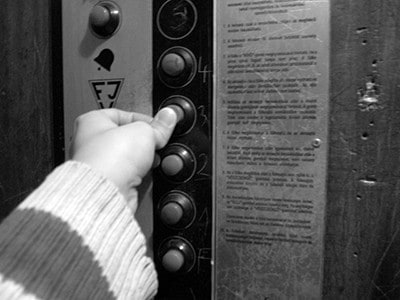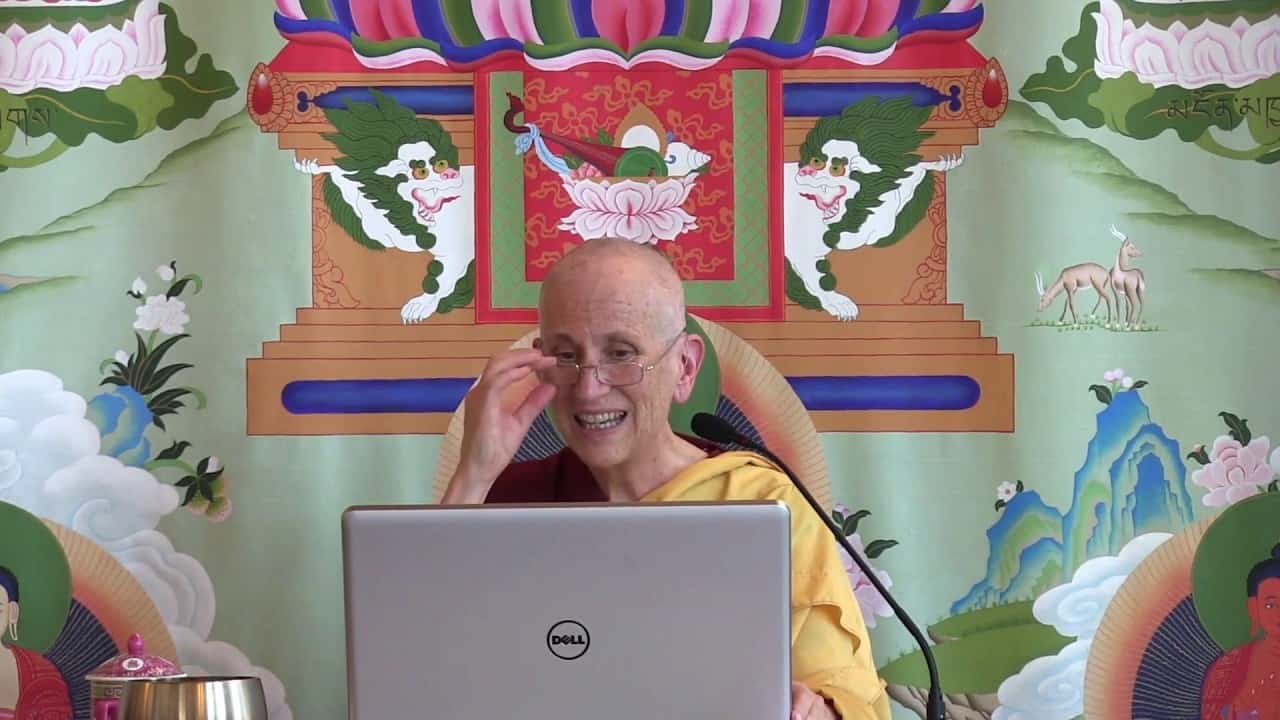It’s never too late
Part of a series of short talks on the pithy verses from the end of Lama Yeshe's book When the Chocolate Runs Out.
- Enthusiasm for the Dharma no matter when we encounter it in life
- How we use our time matters more than the age we are
- Avoiding the laziness of discouragement
Vida [in the audience] is a long-time supporter of the Abbey. And she’s a very good example of the topic I’m going to talk about. I’m reading some of Lama Yeshe’s closing comments in his book When the Chocolate Runs Out. One of them says,
Be reasonable in the way you grow
and don’t ever think that it’s too late.
Yesterday I talked about “being reasonable in the way you grow.” And today here’s Vida who’s an example of “don’t ever think that it’s too late.” Vida and her husband went to our UU group and met the Dharma that way and then started coming up here and every time they came up they had a long list of questions about this long, so interested in the Dharma. They were in their 70s then. Both Bob and Vida would say, “Oh we met the Dharma so late in life. We were in our 70,s” and here it says, “but don’t ever think that it’s too late.” They are perfect examples of that because they met the Dharma and then instantly it just clicked and they followed up. I think I heard both of them say, “Oh we’re sorry we met the Dharma so late,” but they’re such good examples of people who exemplify that it doesn’t matter how old you are when you meet the Dharma. From that moment on you take the ball and run with it. Really beginning to learn, doing practice, purifying the mind, and so on.
Another person who was at the retreat this last weekend, she told me she was 60 and she just met the Dharma a year or two ago, and she’s feeling so strongly that she has a lot of purification that she needs to do, that she wants to do, so she was asking me about purification practice and how to set up a daily practice and everything. I just really appreciated this kind of enthusiasm for practicing. I know a number of the people who are ordained here met the Dharma in their 40s. Any of you meet it in your 50s? Most people in their 40s. It took you a while to get in robes but it didn’t take you so long to start practicing. You met the Dharma and then again just taking the ball and running with it.
[To audience member] How old were you when you met the Dharma? 61, 62. Again another good example, very active in her Dharma center in Sacramento. It really doesn’t matter how old you are. What matters is how we use our time, because there are people who meet the Dharma when they’re quite young and then they play around for the next 50 years, and then finally something hits and they think, “Oh actually I should do some practice.” We get a number of those people coming too.
Anyway whatever age we come to the Dharma with, even if you came to it young and then you played around for a few decades and then you’re coming back, it doesn’t matter. The important thing is at this present moment your heart is in the Dharma, you have the enthusiasm to practice and so you go ahead and do it instead of saying, “Oh, well, you know, I wasted so much time”. That way of thinking is discouraging ourselves, that’s a form of laziness, isn’t it? The laziness of self discouragement so let’s not go in that direction at all. Right?
And if you meet the Dharma when you’re young, then even more fortunate. But meeting it when you’re young is no guarantee that you’re going to practice it continually, so no need to get arrogant about that. Because if you meet the Dharma when you’re young but then you don’t use your time to practice, then the people who meet it when they’re 60 or 70 or whatever are really zooming ahead and leaving you behind.
Venerable Thubten Chodron
Venerable Chodron emphasizes the practical application of Buddha’s teachings in our daily lives and is especially skilled at explaining them in ways easily understood and practiced by Westerners. She is well known for her warm, humorous, and lucid teachings. She was ordained as a Buddhist nun in 1977 by Kyabje Ling Rinpoche in Dharamsala, India, and in 1986 she received bhikshuni (full) ordination in Taiwan. Read her full bio.


